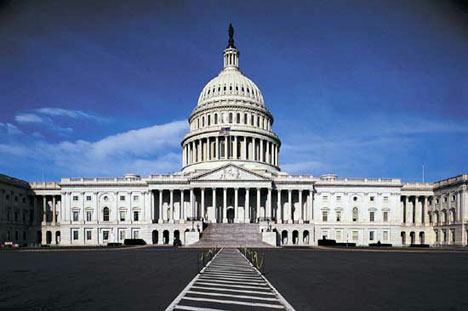
Senate Democrats’ Special Committee on the Climate Crisis Argues their Case for Climate Action | ASP
On August 25, 2020, members of the Senate Democrats’ Special Committee on the Climate Crisis published a report entitled The Case for Climate Action: Building a Clean Economy for the American People.
In the report, the committee argues that climate action is a necessary and an affordable alternative to climate inaction, that will generate economic growth, new jobs, equity, and human security in the long run. The committee calls on Congress, government agencies, and the Trump administration to recommit to global climate cooperation and to center the impacts on people in their efforts. The Case for Climate Action covers American competitiveness, climate security, and energy security. The American Security Project (ASP) has long covered these issues, and in mid-February, ASP’s Chief Operating Officer, Andrew Holland, testified before the committee.
Military Readiness
The committee urges Congress, the Department of Defense, and the military to act on climate change because it threatens military personnel, training, and installations. Specifically, the committee emphasizes the need for
- military installation plans to integrate climate projections;
- all National Defense Authorization Acts (NDAA) to include climate provisions;
- federal agencies to cooperate on climate change data collection and analysis; and
- research and development to reduce the military’s reliance on fossil fuels.
ASP has extensively investigated the threat posed by climate change to U.S. military installations and personnel. Recent work on this issue includes a summary of the FY2021 NDAA and a new website dedicated to military base resilience.
International Engagement
The Case for Climate Action critiques the Trump administration’s pattern of disengagement with international efforts to address climate change, such as leaving the Paris Climate Agreement.
The committee argues the U.S. should
- lead the global response to the climate crisis, through increased foreign aid and investment that supports climate change mitigation and adaptation;
- consider climate factors in foreign policy formulation;
- reengage in international agreements;
- tackle aviation and shipping emissions; and
- increase research and development funding for global climate monitoring systems.
The committee contends that climate change requires a global response because it impacts transnational issues, most importantly, forced migration, trade routes, agricultural and manufacturing supply chains, and geopolitical competition.
ASP’s Andrew Holland emphasized these points during his testimony in mid-February:
[E]nvironmental instability provides our global adversaries with a powerful new tool for competition with the United States. Increasingly, climate and energy assistance are used as a new tool of influence. As countries in strategically important regions—like South America, the Pacific and West Africa—struggle to address climate change, our adversaries offer them comprehensive climate and energy development packages, while they see the U.S. focusing primarily on military cooperation and pulling out of the Paris Agreement. In the coming years, climate action will be an increasingly important tool of soft power—one where the United States is seen to be absent.
ASP examines how climate change intersects with these issues. Related publications investigate the climate impact on the Hindu Kush-Himalayan region, Alaska’s evolving role in U.S. national security, and the threat of ecosystem damage to Latin American economic productivity.





